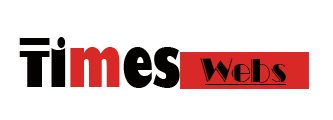How to Start a Food Business
Before you start your own food business, you need to decide which kind of business entity is right for you. Once you have settled on the business model, you should decide what concept you’ll offer and how you’ll market it. You also need to think about your target market and what kind of competition there is in the area. It’s not uncommon for food business owners to hire extra hands to help them with the production. In case you decide to hire extra hands, you may have to consider workers’ compensation insurance and pay them a hefty salary.
Finding a supplier is an essential part of starting a food business. Find a reliable and trustworthy company to source food and other products for your restaurant. You can also buy used equipment and extra stock from other restaurants that are closing their doors. In addition to sourcing locally, you can get advice from trade publications and professional organizations that will help you get started. As you continue to build your business, you’ll be able to find the most suitable suppliers.
Before you open your own food business, you must obtain the necessary licenses and permits. Some requirements are universal and apply to all food businesses, while others are specific to certain products. If you want to start a food business, make sure to consult your local health department and the state agriculture departments. This way, you’ll have the right permits to start selling your products. And keep in mind that the regulations for registering a food business may overlap with those for the agriculture department.
The cost of starting a food business depends on how much initial investment you’re willing to make. Depending on your goals, it could take months to make a profit. For this reason, you should consider a food business loan from a bank or a family member. This loan is a great way to get the start you need to start your business. However, you’ll need to stick to it. You may also want to consider a line of credit. A line of credit is a form of credit that allows you to access a pool of funds and borrow up to the amount of funds. If you’re cash-strapped and need additional funds, this loan is a great option.
Once you’ve decided on a business model, you need to assess the competition in the area. By doing this, you’ll see what gaps you need to fill in the market. Also, you need to know how much your business will cost to operate. Finally, you should be able to calculate realistic profits. It’s never too late to ask for help! You’ll be glad you did. After all, it’s the only way to learn the basics.
If you’re starting a food business, you’ll need to develop a business plan. This document will contain details about your business’s products, revenues, staffing, and logistics. Remember that branding is important, and the food business industry is no different. A consistent visual message will attract potential customers. A business plan can help you get the funding you need to start your food business. And don’t forget to develop a marketing strategy that reflects your vision.







